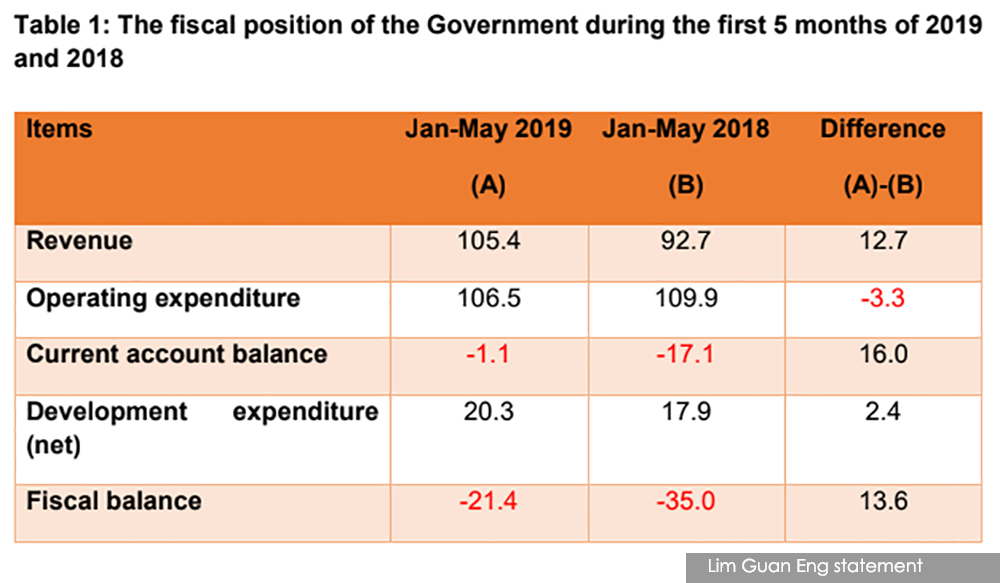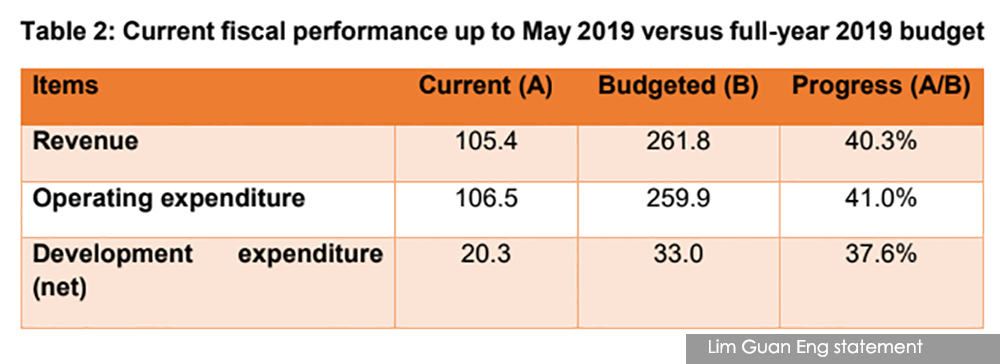
Open competitive tenders and zero-based budgeting have had a positive impact on the government’s finances, allowing for development expenditure to increase by 13 percent or RM2.4 billion for the January to May 2019 period, compared to the same period last year.
For the first five months of 2019, the government successfully cut its fiscal deficit by 39 percent to RM21.4 billion, down from an RM35 billion deficit recorded in the same period last year.
Nevertheless, the government is mindful of its subsidy bill, and will continue to manage its expenses prudently.
Additionally, the government has shrunk its current account deficit to RM1.1 billion between January and May 2019, a reduction of 94 percent or RM16 billion, from a large RM17.1 billion deficit in the same period last year.
The successful fiscal consolidation was amongst the reasons for Fitch Ratings’ affirmation of Malaysia’s sovereign credit rating at A- with a stable outlook on July 18, which follows similar confirmation by S&P Global Ratings on July 3.
Fiscal discipline has been instituted through a combination of tighter controls over operating expenditure in the form of wider application of open competitive tender and implementation of zero-based budgeting.
Further, revenue and spending measures as outlined in Budget 2019 have enabled the government to improve its financial health.
As stated in the Budget 2019 documents, the government plans to spend RM259.9 billion for operational purposes this year.
The RM106.5 billion worth of operational spending made in the January to May period represents 41 percent of the total budgeted 2019 operating expenditure.
Based on the current fiscal performance, the government is positive that it can achieve its fiscal deficit target of 3.4 percent of GDP, while keeping its 2019 current account balance in surplus.
If there is no trade war between China and the US, two of Malaysia’s largest trade partners, the government would even be confident of achieving the targeted three percent of GDP fiscal deficit for 2020.
The government is confident that the economy will expand sustainably this year and in 2020.
The World Bank projects Malaysia to grow 4.6 percent for this year, and this is particularly so as Malaysia’s GDP growth remains robust despite the external challenges arising from the China-US trade war.
In May, the Malaysian industrial production index grew four percent year-on-year, beating market consensus of 3.5 percent year-on-year as compiled by Bloomberg. May 2019 exports grew 2.5 percent year-on-year, also beating market expectations.
Approved FDI across all sectors for the first quarter of 2019 rose 73.4 percent to RM29.3 billion, compared to RM16.9 billion a year ago.
In the first quarter of 2019, approved FDI growth was driven by a 127 percent increase in approved manufacturing FDI to RM20.2 billion, compared to RM8.9 billion a year ago.
Vehicle sales for the first five months of 2019 have improved by 13 percent, compared to the same period a year ago.
Meanwhile, the unemployment rate for the month of May has dropped to 3.3 percent, from 3.4 percent in April 2019.
The government is on track towards fully restoring its fiscal health by 2021. With support from the rakyat, Malaysia has good prospects to overcome the financial legacy issues of high debt load and failed governance left behind by the previous administration.
Sayangi Malaysiaku!
LIM GUAN ENG is the finance minister. - Mkini





No comments:
Post a Comment
Note: Only a member of this blog may post a comment.